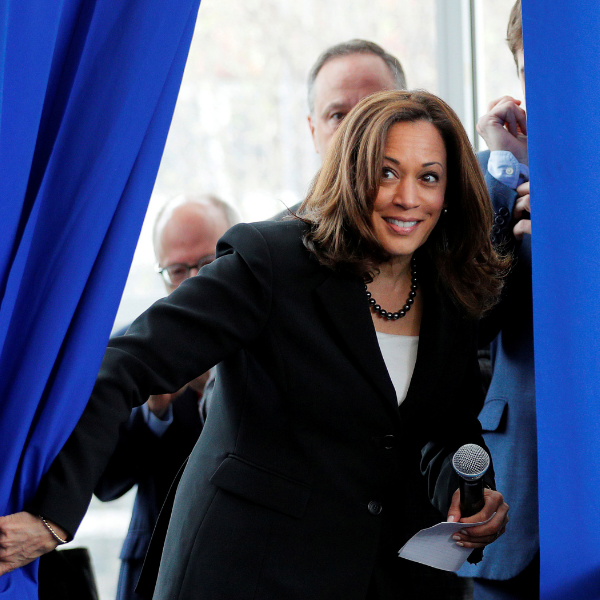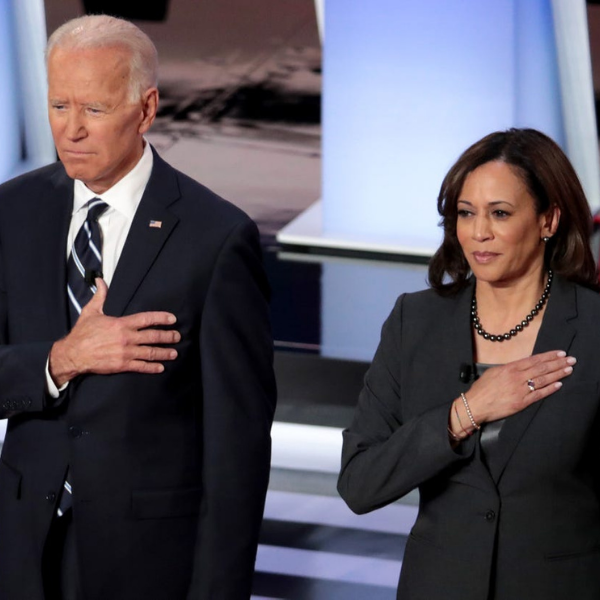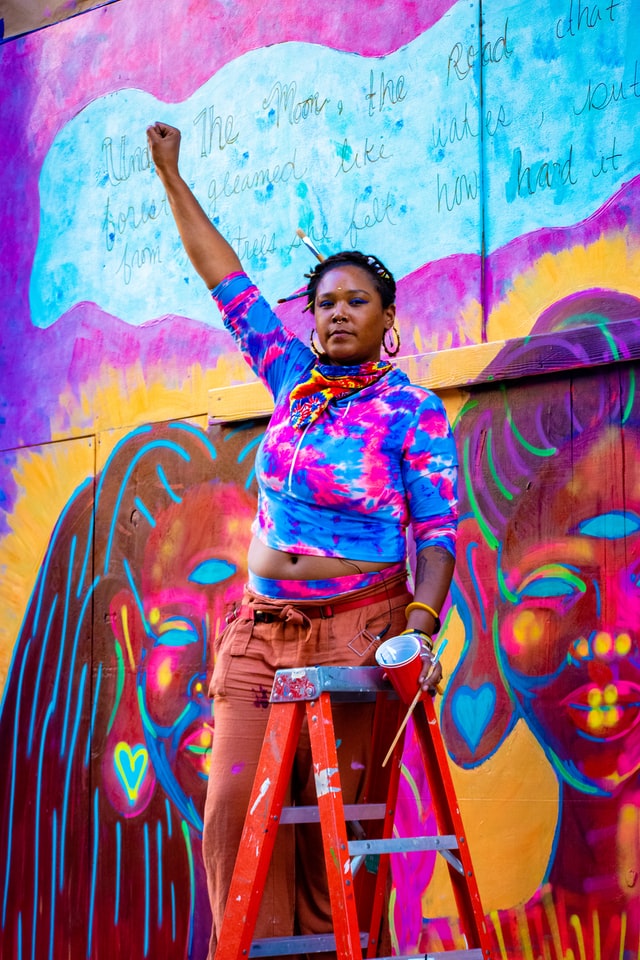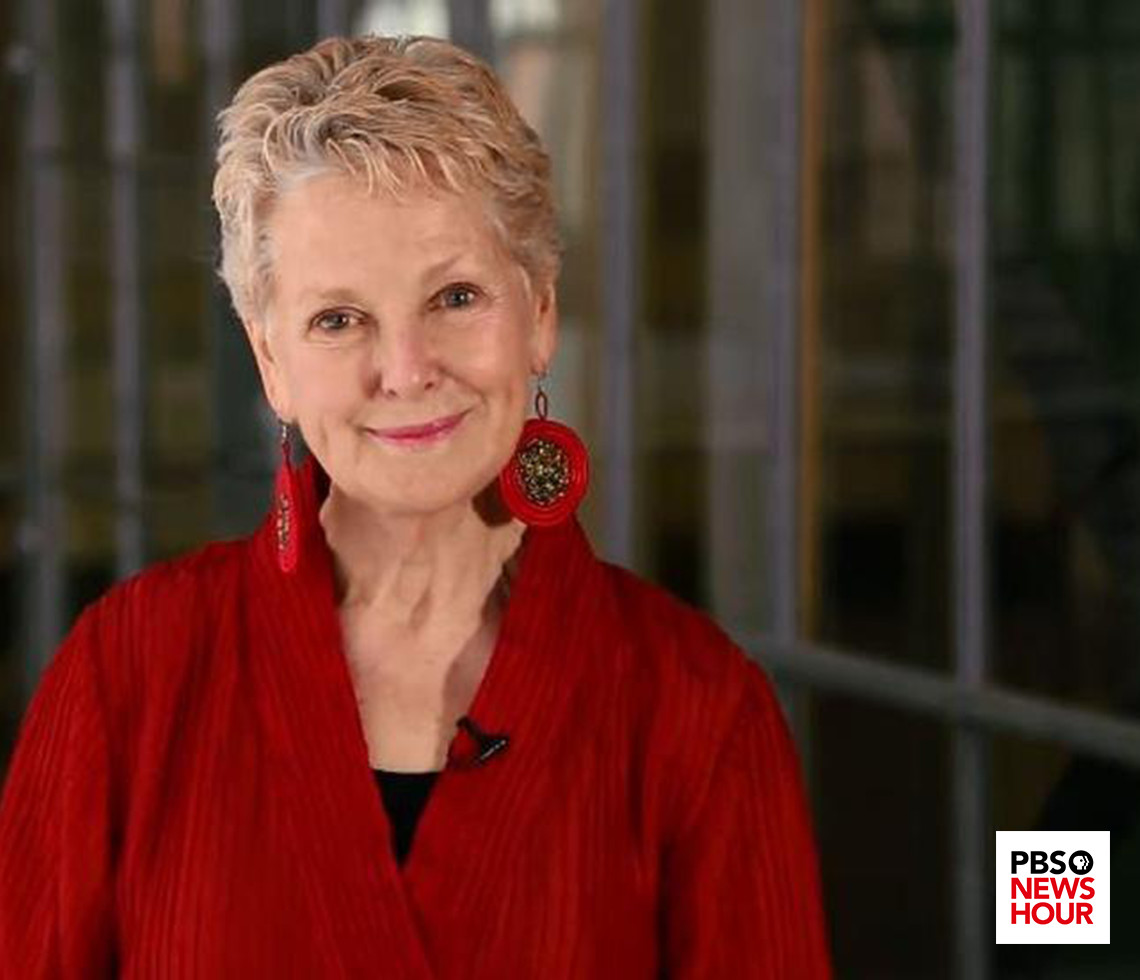Vice President Kamala Harris: Partner-in-Chief
 Kamala Harris’ vice-presidency is already iconoclastic: A woman of color standing one heartbeat away from the Oval Office. With a death-dealing plague, a shattered economy, and a polarized populace… the job of governing was going to be big. When the Capitol was invaded, it got bigger.
Kamala Harris’ vice-presidency is already iconoclastic: A woman of color standing one heartbeat away from the Oval Office. With a death-dealing plague, a shattered economy, and a polarized populace… the job of governing was going to be big. When the Capitol was invaded, it got bigger.
A helluva a lot bigger.
Carrying the weight of these crises is nigh to impossible, but only in the last half-century have there been four shoulders instead of two to bear the load. Most of us assume that the President and Vice-President of the United States were meant to be true collaborators. Not so. For most of our history, the VP was chosen mostly for political balance—usually geographic and ideological. But in 1992, candidate Bill Clinton tapped his political doppelganger, Al Gore: Young, Southern, moderate, Ivy League—even a born-again Baptist. Senator Gore brought the Arkansas governor federal chops. Their legendary collaboration was dubbed by Harvard and Brookings political scientist Elaine Kamarck a “partnership presidency.”
The words sound intuitive, but it’s a hard balance to strike. Post Clinton, Presidents Bush, and Trump shared the White House with heavy-handed Cheney and hopelessly helpless Pence. But of note, from 2009 – 2017 the world was enthralled by a partnership that became a full-out bromance. In an alchemy of power, a Vice-President’s DC experience seasoned a President’s audacity of hope. Political power-sharing hit a new high. Biden was  Obama’s alter ego—the first and last “in the room where it happens.”
Obama’s alter ego—the first and last “in the room where it happens.”
Given this backdrop, it’s no surprise that Joe Biden has h ad Kamala Harris standing firmly by his side. The new administration is not called by one name, but hyphenated like a modern marriage: “Biden-Harris.” Aimee Allison, founder of She the People, is a highly respected leader in Black women’s political empowerment. She calls these optics “hopeful and necessary signs on the heels and in the midst of some of the darkest hours in our country.” In fact, a few days before the Inauguration, Harris boldly but carefully chose her words as she told National Public Radio that she and her new boss would be “full partners” in governing.
ad Kamala Harris standing firmly by his side. The new administration is not called by one name, but hyphenated like a modern marriage: “Biden-Harris.” Aimee Allison, founder of She the People, is a highly respected leader in Black women’s political empowerment. She calls these optics “hopeful and necessary signs on the heels and in the midst of some of the darkest hours in our country.” In fact, a few days before the Inauguration, Harris boldly but carefully chose her words as she told National Public Radio that she and her new boss would be “full partners” in governing.
The VP swore her oath at no ordinary time. Obviously, there’s concern that the President will be an octogenarian by the end of this term. But as the attack on the Capitol (and insurrection across the nation) remind us, in addition to the vicissitudes of age, he faces unprecedented threats against his life. Not only must the new VP stand with Joe Biden. Unlike any vice president in recent history, she must be ready to step in.
The Vice President will be strong and stretched in the coming years, up against crises caused by foreign forces, domestic devils, and a micro-menace that in a calmer time would be all-encompassing. She will continue to be loyal to her presidential partner. Her political fate will be impacted by the success of the administration in bringing stability and some semblance of reunification to the nation.
I’m betting she’ll thrive as Vice President, and if she gains her party’s nomination post-Biden, Kamala Harris will join Hillary Rodham Clinton not just as a presidential nominee who is female, but also enormously qualified. That said, she’ll have to take on malignant forces similar to HRC: social toxins like sexism and racism; and—please God, not Trump as her opponent?
Despite the storm already upon us, the Biden-Harris presidency will right the ship of state. Let’s hope that with the rising tide of women’s political power, and a swell of marginalized voices, a Harris presidential run would be a fair fight; whether or not, our new vice president will revolutionize our notions of the nation’s top leadership.
She won’t be blowin’ in the wind. In the best of ways, she’ll be the wind.

|
This piece was originally published in Women's eNews here. |
About the Author: Swanee Hunt, former US ambassador to Austria, is founder of the Women and Public Policy Program at the Harvard Kennedy School of Government and founder of Seismic Shift, an initiative dedicated to increasing the number of women in high political office.






